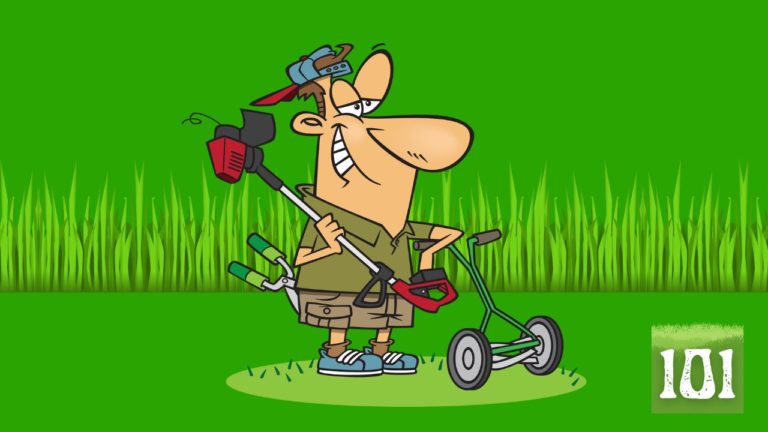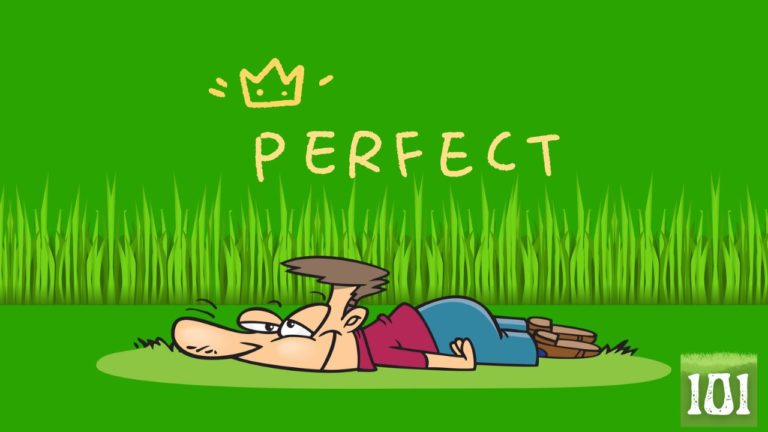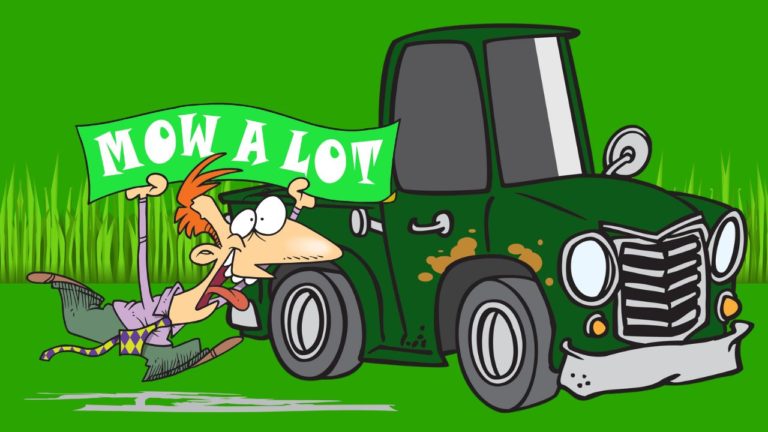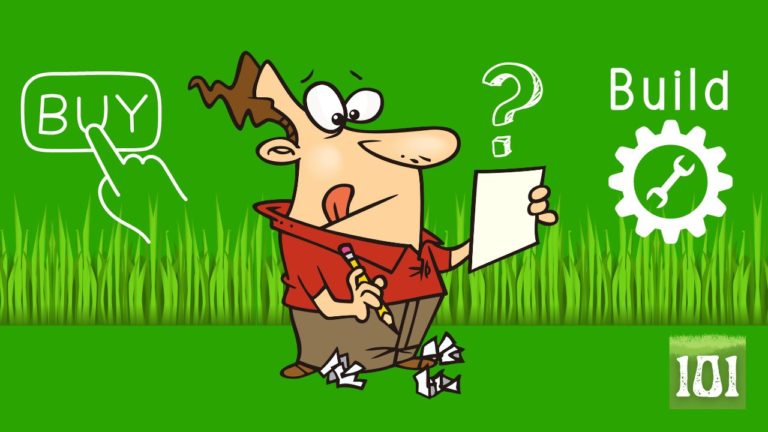How to start a lawn mowing business in New Zealand
A lawn mowing business could be the easiest step towards self-employment. Usually, to get any business off the ground you require a large amount of capital. However, with a lawn care business, you could start with a van, lawn mower, weed eater, and blower.
When I started mowing lawns, nobody sold blowers, so for the first ten years or so, I used to turn the weed eater on its side to blow grass off paths and such. Using a weed eater for this can work, but it is not easy, and you can only do small areas.
If you’re thinking of starting a lawn care business, you’re in luck – it’s a low entry-level business, which means you can get started with very little money invested. The low entry cost will be a blessing and curse for you. It will enable you to get started very quickly, but the bad news is that everyone else can do that too.
The first thing you need to know about owning a lawn mowing business.
If you stick around for a while, you will get used to seeing people come and go. The key to lawn mowing business success is building a loyal customer base who appreciate your quality workmanship and are willing to pay for it. To do this, you must focus on providing outstanding service at a fair price. You’ll be well on your way to success if you can do that.
Another great thing about this industry is that the cash flow is consistent. You get a recurring income from day one. You book a lawn and turn up every week or fortnight to cut it.
One of the other significant benefits of this industry is that no formal qualifications are needed. If you decide to employ someone, you will be able to train them yourself, so you will not have to spend much money on employing them. This can help with the bottom line, but you need to be aware that finding good workers in the lawn-mowing industry is hard.
The best time to start a lawn mowing business in New Zealand.
Timing is everything. You can just about start a lawn mowing business at any time of year as long as you don’t have snow. However, starting a lawn mowing business in the spring is much easier. This season is the peak growing time, and you will have many more customers looking for a lawn mowing business at that time of year, so if you can answer your phone personally and get to the quotes quickly, you can build a business relatively fast. If you have a marketing budget, this is the time to use your maximum spend.
You should consider starting in August. This will give you a month to get things ready before Spring hits. You will be in the perfect position to capture a good amount of work. Many lawn mowing contractors will be moving their lawns from a three to two-week cycle, so they will struggle to fit in new quotes.
The best thing to do is to have what I call “a tow truck driver” mentality. This means you want to be the first guy to arrive at the job, the first to quote and hopefully the first to mow. This is also an excellent technique to use over Christmas. You get a lot of calls over the break for people whose contractor has let down because he thought he would have a holiday.
Now is the time for you to be “Jonny on the spot” and secure all those newly orphaned jobs.
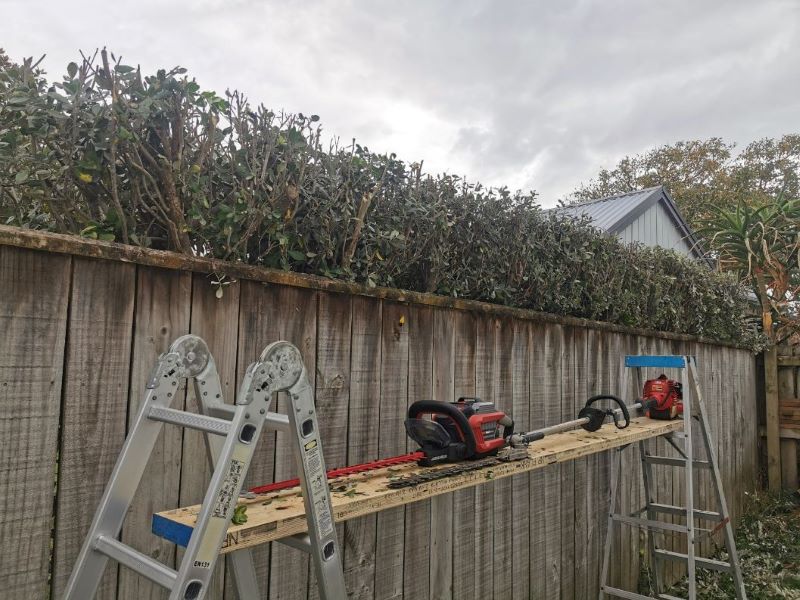

Keep your startup costs to a minimum.
Have some backup money if possible.
If you do not have a small amount of savings to get you through, you may sell your services too cheaply just to get some money. However, this is a bad habit to get into.
Underpricing can be a bad mistake, forcing you to build a substandard business that will never be able to support you. Start as you mean to continue.
If you are getting every quote. You are pricing too low. If you are not getting at least one in five quotes then you are probably quoting too high. I find the Goldilocks zone to be about one in three quotes.
Branding
When you start, although branding is important, it is not something you have to think about from the beginning if you don’t have the budget. You will have to have a name for your business, but you do not need to have signage for your truck from day one. You can always do that a bit later. I suggest you have at least your business name and a number on your vehicle from day one if you can afford it.
If you are struggling to come up with a name read this article “How to name your lawn mowing business”
Naming your business need not be expensive, and you will get more people to approach you for quotes while you are working.
Go to somewhere like Canva to design a free logo and business card. Then go to a place like Vistaprint to get some cards and car magnets made for less the $150 bucks,
I would do a search for the name you intend to use before you pull the trigger. If you don’t want other people using it then you may want to register your business name.
Buy your equipment as you need it.
Don’t run out and buy all your extra tools at once. Buy things as you need them instead. Doing this will save you a bit of startup money and may enable you to buy something a bit better when the time comes.
Start with the basics, and later on, get extra tools only when you have a job booked where you need them. Before you buy anything significant you will only use occasionally, consider renting it instead of purchasing.
When I started, I used second-hand equipment, and when I grew a bit and needed new machines, I would take them over three months and make three payments. It was hard work raising the money for the repayments, but only three of them were owned, and then I owned the equipment.
I have heard of a lawn mowing guy who bought second-hand equipment, fixed it up, used it for around eight weeks, sold it, and bought something a bit better. He kept this up for a season; by the end, he had new equipment with nothing owing.
For this to work, you will need to be mechanically minded. I never had this option as I have always been useless with engines. I have learned enough to maintain my mowers; if anything goes wrong, I take it to a workshop. It may work for you if you know your way around a small engine.
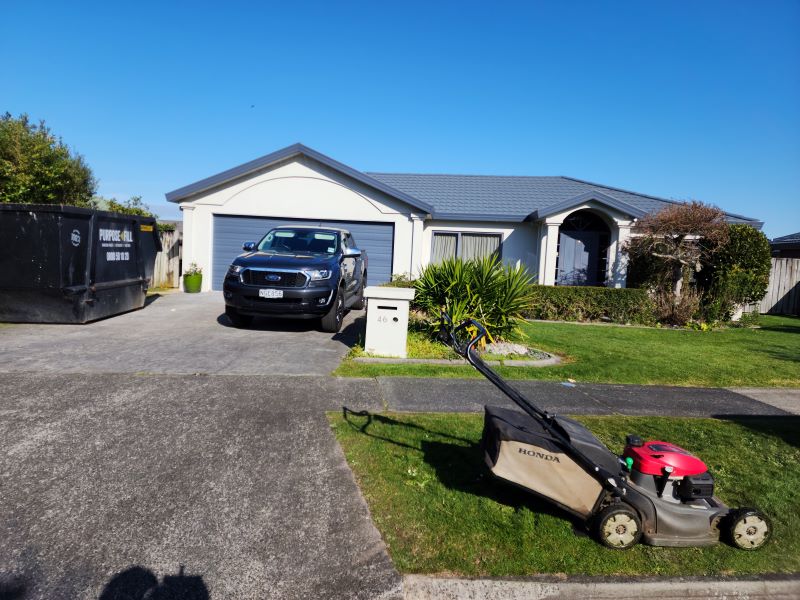

Have a startup budget for your lawn mowing business.
Work out how much you want to invest in your new business and how long it will take to generate the income you need to cover your living expenses. Do remember that it is a sliding scale as well. The more income you make at the beginning, the less your savings will cost you to cover living expenses.
I will give you some examples here.
I am assuming that you already have a vehicle for this scenario.
You spend $1000 on equipment to start your business. It could be new lower-end commercial equipment or slightly higher-end but second-hand.
Your savings are $4000, and your living costs are $500 a week.
Slow growth model
If you could increase the growth of your business by $50 a week and pay yourself 50% of turnover in your first few months, it would look like this.
- Month one = Turnover $500 Income $300 Living expenses $2000 = $1700 loss (out of savings)
- Month two = Turnover $1300 Income $780 Living expenses $2000 = $1220 loss (out of savings)
- Month three = Turnover $2100 Income $1260 Living expenses $2000 = $740 loss (out of savings)
- Month four = Turnover $2900 Income $1740 Living expenses $2000 = $260 loss (out of savings)
- Month five = Turnover $3700 Income $2220 Living expenses $2000 = $220 Profit
It will take you five months to reach BEP (break-even point), costing you $3920 out of your savings.
Fast growth model
If you could increase the growth of your business by $100 a week and pay yourself 50% of turnover in your first few months, it would look like this.
- Month one = Turnover $1000 Income $600 Living expenses $2000 = $1400 loss (out of savings)
- Month two = Turnover $2600 Income $1560 Living expenses $2000 = $440 loss (out of savings)
- Month three = Turnover $4200 Income $2520 Living expenses $2000 = $520 profit
Now it will only take three months to reach BEP (break-even point), and it will only cost you $1840 out of your savings.
This is a simplistic overview as I have assumed every month is four weeks long and you will not be paying yourself 50% of turnover, but this should give you a general idea of what you need.
Once you reach the break-even point, if you haven’t got signage on your truck, now is the time to do that.
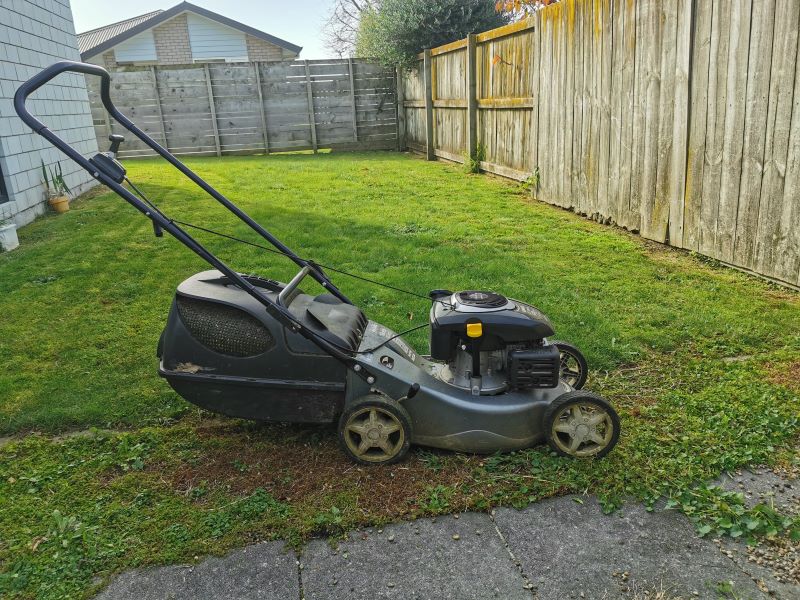

Decide what market you are going to target.
Your setup costs will also be directly related to your target market. The larger the lawns you aim for, the more significant the startup cost. If you are seeking large commercial lawns, you will have to sink a lot of money in, and you will most likely need to register for GST from day one.
On the other hand, if you start on small domestic lawns, your startup cost will be low.
My sweet spot is small residential lawns that take me less than half an hour to cut, and I charge $35-$40 a cut. You can get lots of these done in a day and still get home by 3 p.m. This method can be a high-profit area that large companies with big equipment are missing. Their mowers won’t fit through the gates, and yours will. This kind of business can also be much less stressful when you get rained off or there is a public holiday as you just do a few 5 pm finishes and you’re all caught up.
I would suggest you aim for this market first, and then if you want to go commercial, look at that the following season. Build a small business and make a little money first.
The best method of getting new customers is to first set up a free “Google My Business listing” and then set up the free Google Web site. Once that is done put a bit of money into local marketing with Google Ads.
I have helped dozens of lawn-mowing businesses start and grow all around New Zealand and Australia using that system. I offer this training and everything else you need to know through my lawnmowing101 membership.
Buying a franchise or an existing business.
Buying a franchise is an option, or Buying an existing lawn mowing business is an option. This can be a minefield, and you need to examine the company you are looking at buying mowingfully.
I have a buyer’s guide How to buy a lawn mowing business and I cover this subject in much more detail.
How I started my lawn mowing business.
I started with less than $2000 in savings and bought second-hand equipment. After a year of hard work, I was in a position to start buying new equipment.
My first vehicle was a bit of a wreck, and my first trailer was made entirely of wood. That served me well until someone ran into the back of it at a set of traffic lights. They completely demolished the trailer. He gave me his details and told me to call in. To my surprise, he paid me cash that night.
I put that money towards a better trailer. Now that I think back about that, I was fortunate. The trailer was not insured, so that could have been a giant step backwards if the driver responsible had not paid up. Make sure you take out insurance. If this happens to you, you will not be as lucky as I was.
You can read my story on my website or listen to the podcast interview I did with Julio Tome from “Lawn Car Success” <iframe src=”https://podcasters.spotify.com/pod/show/lawncarebusinesssuccess/embed/episodes/387—Stuart-Clifford-from-Gecko-Lawns-e1rvobv/a-a90t351″ height=”102px” width=”400px” frameborder=”0″ scrolling=”no”></iframe>
Remember that your work ethic is more important than your equipment.
The main point is that it doesn’t really matter what you start with as long as you work hard and focus on constantly improving your equipment as you go.
If you buy a cheap mower, aim to replace it as soon as possible. Don’t start paying yourself any more than you need to cover living costs until you have at least upgraded all of your equipment.
If you get a cheap vehicle, aim to replace it by the following Spring. Once vehicles get old, they start breaking down and become unreliable. That is not what you want in the long term for your business.
How are you going to be reliable if your vehicle is not?
I started with a bomb, but nowadays, I won’t use anything over ten years old.
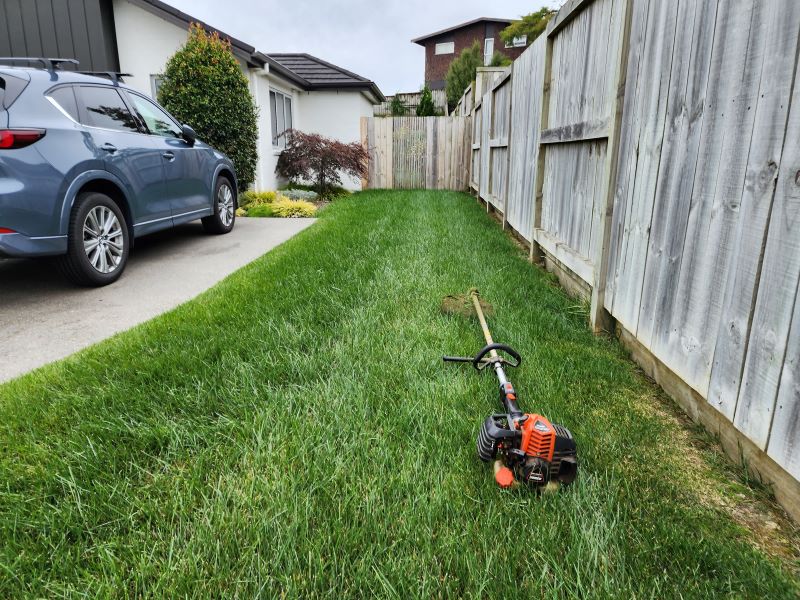

Equipment needed and the cost of setup.
I have a list of tools needed here and links to my recommendations. Please note that my suggestions are just that. You should buy the lawnmower you feel is best suited for your business, which may not be the one I have recommended here. That is fine, as every business is different and has different needs when it comes to equipment.
- A vehicle – This could be a small truck a ute or a van.
- A trailer – This will depend on the size of your first mower. Suppose you are using push mowers 21 inches or less, and you may not need a trailer to start.
- For further reading on trailers, you can read the article “The Best Trailer to Buy for a Lawn mowing Business.”
- A lawnmower – This could be anything from a 19-inch push mower to a 35-inch if you are aiming for small residential.
- A Weedeater – Don’t buy a bent shaft if you can help it. If you are on a budget, try to buy a low-end straight shaft line trimmer.
- A blower – A handheld is cheaper but can become tiresome on big things like driveways. A backpack is better for this kind of job.
- Safety equipment –
- Earmuffs – Do not go cheap here
- safety glasses – non-breakable lenses
- Boots – preferably with ankle support.
This is the gear I am currently using
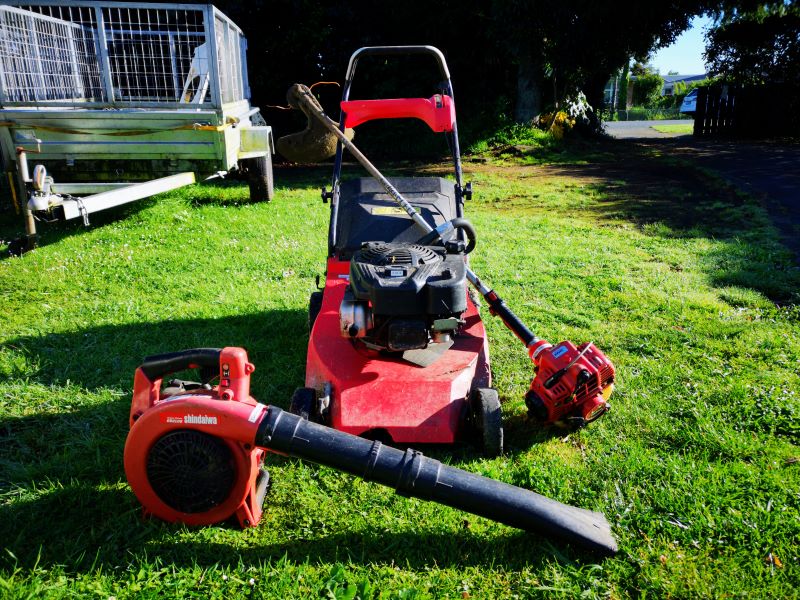

19” Testarossa, Shindawa EB252 blower and a Shindawa T262XS Weedeater (a T226SA will do if you want something a bit smaller)
Other costs to factor in.
GST
Here in New Zealand, you do not have to register your business for GST unless you get to the point where you are going to exceed $60 in a twelve-month period. Once you hit $1100 a week then you need to think about registering.
GST is going to cost you income. You will always be claiming less than you spend because lawn mowing is a labour-intensive business, and your costs a low.
Do you need to register your business? Read more about setting up a business in New Zealand in my free business setup guide
Insurance.
Another variable, so I cannot price that here. Business insurance usually comes in two forms.
- Health or accident – You should spend some time finding the best possible cover for the least amount of cost.
- Equipment – We usually do not insure anything under $1000 as we have a $500 excess on our insurance, but everything else is covered. We self-insure, so we have $1000 in a fund to cover any small losses.
You could lose everything if your vehicle were hit and written off while parked outside a customer’s house. You are putting yourself and your customers at risk if you are not insured. Now you have no vehicle, and if you cannot replace it promptly, you will start losing customers.
They will feel bad for you, but they won’t wait while the grass grows up around their ears for you because they like you. They will move on, and you could lose everything, so don’t take the risk.
Insurance is a cheap way of covering yourself, so you know that you will be able to continue trading and earn a living no matter what happens.
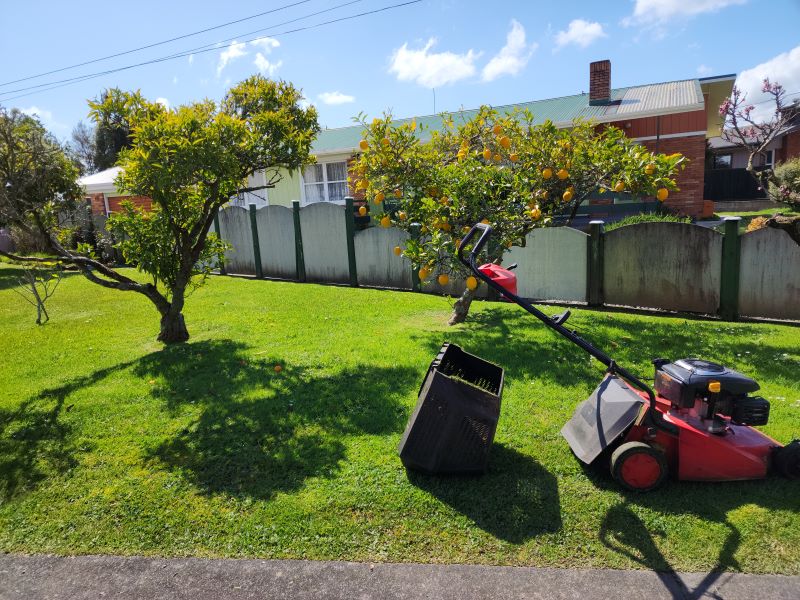

Public liability insurance is a must-have.
Get public liability insurance, as this will cover you if something goes wrong in a big way. You can typically get a million dollars worth of public liability for a small amount of money every year.
I had a friend years ago who started a tire white walling business. After a few months, he got a few car yards on his books and started making good money. One day he was working in a car yard, and he had a vehicle on a jack at the back of the yard.
He had not engaged the brake correctly, and the yard was on slop, so the car rolled off the jack. He got out of the way in time, but the vehicle continued down the yard, hitting classic European cars all the way down.
By the time it stopped, that car was severely damaged. He never recovered. He lost his business and spent years working another job to pay off the damage. If he had had public liability insurance, he would have been covered.
Shop around a lot when pricing insurance. The prices can vary a lot.
Are you looking for a step-by-step guide to building a six-figure lawn mowing business? If so then join the lawnmowing101 membership and you will find full training there.
Frequently Asked Questions
1. How do I start?
To summarise the start-up process
- Start with a business plan: This will help you with a blueprint on how to get your lawn business off the ground.
- Decide on the structure of your business: How are you going to operate a lawn care business are you going to pass the GST threshold? Are you going to apply for a NZBN (New Zealand Business Number)? you’ll need to register with IRD as well. This video will help you there.
- Buy your equipment: You will need to purchase the lawn care equipment that you will need to run your business. Start with the basics that you will need for a lawn mowing service and then start purchasing other equipment as your business grows.
- Market your business: Get the word out there. Pass out cards and talk to people. Spend time on Facebook in local groups helping people out. Run some Ads. I talk more about that in my membership.
- Deliver exceptional service: A reputation can make or break you. You depend on repeat business so don’t cut corners and become the business that’s known for doing good work.
2. Do you need a business license?
No, you will not need to obtain a business license to legally operate a lawn mowing business in New Zealand. However, if you decide to do something like lawn treatments you will need a chemicals licence.
3. How can I market my lawn care business?
To effectively market your lawn care business, consider the following strategies:
- Create a professional website: Showcase your services, testimonials, and contact information on a well-designed website.
- Distribute business cards and flyers: Hand out business cards and flyers in your local community, targeting residential areas with well-maintained lawns.
- Utilize online advertising: Advertise your services on social media platforms, local directories, and online classifieds.
- Offer referral incentives: Encourage satisfied customers to refer your services by providing discounts or rewards.
- Network with related businesses: Establish partnerships or referral agreements with tree companies, handymen and property management companies.
4. What equipment do I need to start a lawn care business?
To start a lawn care business, you will need essential equipment such as a trailer to transport your equipment, a lawn mower, a weedeater, a leaf blower, and other hand tools.
Build a six-figure lawn mowing business starting in your spare time with lawnmowing101



